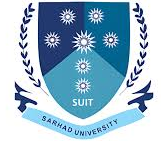INTERNAL AUDITING PRACTICES AND INTERNAL CONTROL QUALITY IN STATE-OWNED ENTERPRISES: EVIDENCE FROM PAKISTAN
Abstract
This study examines the role of internal auditing practices compliance with the International Standards for the Professional Practice of Internal Auditing (ISPPIA) in enhancing internal control quality in Pakistani State-Owned Enterprises (SOEs). Data was collected through an online survey of Chief Audit Executives (CAEs) of SOEs from various sectors. An ordinal logistic regression model was used to test the influence of compliance with international best practice guidelines of the Institute of Internal Auditors (IIA) related to independence of the internal audit function, competence of the internal audit function, quality assurance and improvement programmes, and audit committee characteristics over seventeen principles of the Committee of Sponsoring Organizations (COSO) of the Treadway Commission Internal Control Framework. The results indicate that the independence of the internal audit function (IAF) and the characteristics of the audit committee have a statistically significant positive impact on the internal control system. However, findings related to quality assurance and improvement programs, and competence of the IAF, were deemed insignificant. The study is expected to contributes to accountability theory by highlighting that how quality internal audit practices can enhance internal control and thereby strengthen the accountability mechanism in public sector. The results are also expected to have important practical implication, both locally and globally.
Downloads
Published
Issue
Section
License
Copyright (c) 2023 Syed Imtiaz Ali, Arshad Ali

This work is licensed under a Creative Commons Attribution 4.0 International License.
Submission of an original manuscript to the Journal will be taken to mean that it represents original work not previously published, that it is not being considered elsewhere for publication. And if accepted for publication, it will be published in print and online and it will not be published elsewhere.
The journal main policy reflects in its stance that the publication of scholarly research is exclusively meant to disseminate knowledge and not-for-purposes.
Copyright Statment
Sarhad Journal of Management Sciences is published by Sarhad University of Science and Information Technology Peshawar. This copyright statement entails that all contents (including text, tables, graphs, images, or any materials that is part and parcel of a research article submitted to the journal) belong to/ property of the person who owned it prior to submission this journal. Publication of the submitted article will not affect the ownership of copyright of the subject materials. SJMS and its users benefit from a general licence over all content submitted under a Creative Commons CC-BY licence over all content. However, content which is not part of the submitted article, is the property of SJMS. In a nutshell, the combination of all content on the SJMS website, the look and feel of the website, is the property of Sarhad University of Science and Information Technology Peshawar.
As an author or contributor, you grant permission to others to reproduce your articles, including any graphics and third-party materials supplied by you, in accordance with the SJMS Terms and Conditions. The licence granted to third parties over all contents of each article, including third-party elements, is a Creative Commons Attribution ("CC BY") licence. The current version is CC-BY, version 4.0 (http://creativecommons.org/licenses/by/4.0/), and the licence will automatically be updated as and when updated by the Creative Commons organisation.
You may include a requirement to reproduce copyright notices but you may not restrict the right to reproduce the entire article, including third-party graphics. This means that you must obtain any necessary third-party consents and permissions to reproduce third-party materials in your articles submitted to SJMS.
Copyright Statement updated September 13, 2022.




